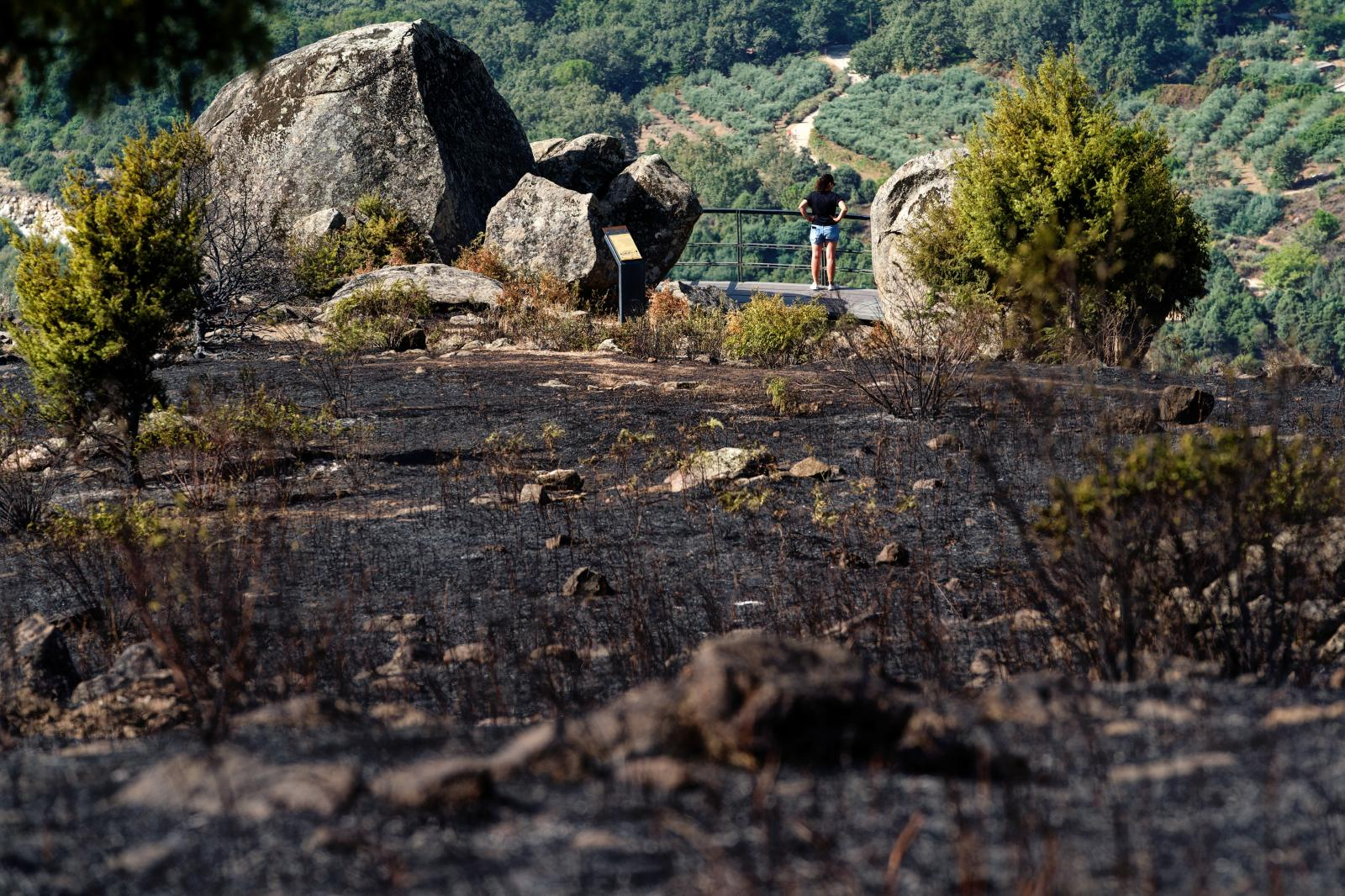

Sections
Services
Highlight

Alfonso Torices
Madrid
Miércoles, 28 de agosto 2024, 17:45
La Palma, July 14, 2023. Several people celebrate a nighttime party in a wooded area, ignoring the prohibition against lighting fires despite the extreme risk. The flames burned 4,000 hectares, part of the island's environmental jewel, forced the evacuation of two towns, and destroyed 20 buildings.
Ateca (Zaragoza), July 18, 2022. Sparks from an excavator that continued operating despite a ban during a heatwave ravaged 14,000 hectares and halted the AVE train for hours. Minutes later, another similar act of carelessness by a farmer devoured 3,500 hectares in the Burgos region of Arlanza and nearly incinerated the Silos Abbey, an emblem of Spanish Romanesque architecture. Both fires surrounded ten villages from which 4,000 residents fled, and the Burgos fire almost cost the life of a helicopter pilot who ended up crashing.
These are just three examples of the more than 9,000 forest fires caused each year on average by Spaniards through criminal acts, negligence, and accidents. According to a report by the environmental NGO WWF, 95% of all fires that devastate forests, farms, and woodlands are due to human activity. The report denounces that in most cases, these acts are committed with impunity since their million-euro damages to the environment, heritage, and people go unpunished. Each year, these crimes and irresponsibilities consume about 75,000 hectares—the equivalent area of Lanzarote.
More than half of all forest fires are intentional; a quarter are due to negligence; and only 5% can be attributed to lightning or other natural factors. About 14% are caused by arsonists and vandals; nearly 40% result from stubble burning, waste disposal or unauthorized machinery use; and another 30% come from land regeneration burns that get out of control. There are also smaller numbers of fires caused by revenge, property disputes, seeking subsidies or changing land use, or risks associated with hunting.
The reasons for such predatory human behavior are mainly threefold according to experts: the "deep-rooted and widespread" use of fire in rural areas as a tool for pasture and land regeneration and cleaning; the existence of "significant social and economic conflicts" in some rural regions; and the lack of social and personal awareness about fire risks that places exclusive responsibility for prevention and extinction on administrations.
Environmentalists believe that much of the blame for "this alarming scenario" lies with the lack of thorough administrative, police, and judicial investigations that would deter those who cause fires and end their "current impunity." This is why they demand that governments, police officers, prosecutors, and judges impose "exemplary sanctions and sentences" to serve as warnings. The data seems to support their case. In 2022—a disastrous year when 270,000 hectares burned in the worst results in three decades—only criminal investigations were opened against 482 individuals. The problem is not a lack of enforcement tools; there are plenty. Fines for ignoring administrative bans on fire and machinery use on high or extreme risk days can reach up to one million euros depending on damage and intent. Additionally, causing forest fires can result in prison sentences ranging from one to six years or five to ten years if lives or personal integrity were endangered.
WWF acknowledges that Spain possibly has the best forest fire extinguishing system in the world but reminds us that this is not a solution against advancing global warming which generalizes droughts and is behind the proliferation of mega-fires that overwhelm emergency response capacities.
In addition to exemplary prosecution of arsonists, environmentalists suggest indispensable measures to reduce incidents and end impunity: social intervention and dialogue in high-fire recurrence areas (to end agricultural burns and other recklessness) and launching public awareness campaigns about the high risks of individual irresponsibility.
Publicidad
Publicidad
Te puede interesar
Publicidad
Publicidad
Esta funcionalidad es exclusiva para registrados.
Reporta un error en esta noticia

Debido a un error no hemos podido dar de alta tu suscripción.
Por favor, ponte en contacto con Atención al Cliente.

¡Bienvenido a TODOALICANTE!

Tu suscripción con Google se ha realizado correctamente, pero ya tenías otra suscripción activa en TODOALICANTE.
Déjanos tus datos y nos pondremos en contacto contigo para analizar tu caso

¡Tu suscripción con Google se ha realizado correctamente!
La compra se ha asociado al siguiente email
Comentar es una ventaja exclusiva para registrados
¿Ya eres registrado?
Inicia sesiónNecesitas ser suscriptor para poder votar.